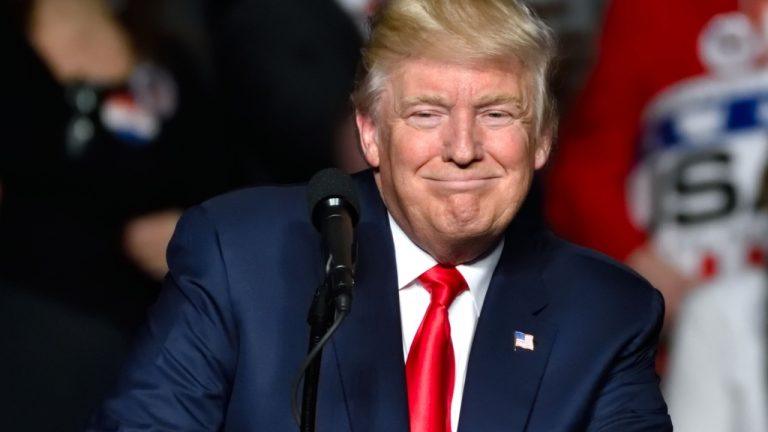FTX was engaged in a massive, years-long fraud: US prosecutors
7 min read
NEW YORK – Sam Bankman-Frieds lies, US prosecutors say, stretched back to the very beginning.
From the founding of his cryptocurrency exchange FTX in 2019, Bankman-Fried engaged in widespread fraud, federal authorities charged on Tuesday, and used his customers deposits to finance his political activities, buy lavish real estate and invest in other companies.
According to civil and criminal charges filed against Bankman-Fried in the Southern District of New York, he repeatedly lied to customers, investors and lenders about the structure of his business empire and how he handled the billions of dollars in funds that crypto users deposited in his exchange.
In a 13-page criminal indictment, Bankman-Fried was charged with eight counts, including wire fraud against customers and lenders, as well as conspiracy to defraud the United States and violate campaign finance laws. A civil complaint filed by the US Securities and Exchange Commission (SEC) laid out a detailed narrative of FTXs collapse, claiming that for three years Bankman-Fried had misappropriated billions in customer deposits to fund his business and political activities.
The charges against Bankman-Fried came on one of the most dramatic days in the rapidly unfolding collapse of FTX, which has rocked the crypto industry. In Washington, the companys new chief executive officer, who took over when the firm filed for bankruptcy, testified in Congress, laying out the myriad management failures that contributed to the exchanges implosion. In Nassau, the capital of the Bahamas, Bankman-Fried appeared in court for the first time, having spent the night in a police cell after being arrested at his home on Dec 12. He was denied bail and will remain in custody.
The arrest surprised the FTX founder and his parents, who were visiting him, according to a person with knowledge of the matter. Bankman-Fried was taken away in handcuffs.
Bankman-Fried appeared in Magistrate Court, dressed in a blue suit and white shirt, eschewing his usual disheveled outfit of shorts and a T-shirt. He was escorted inside by police, while his parents, Stanford Law School professors Joe Bankman and Barbara Fried, sat in the rear of the gallery.
The lead prosecutor for Bahamian authorities, Franklyn Williams, argued that Bankman-Fried was a flight risk, with sufficient financial resources to escape the country. A lawyer for Bankman-Fried said his decision to remain in the Bahamas after FTX collapsed showed he had no intention to flee, adding that Bankman-Fried required medication for depression and attention deficit disorder.
The courts chief magistrate, Joyann Ferguson-Pratt, ruled that Bankman-Fried should remain in custody. He was allowed a few minutes with his parents, who embraced him in a long hug as the courtroom was cleared.
Bankman-Frieds arrest was a stunning fall from grace for an executive who was once described as a modern-day John Pierpont Morgan, and became a darling of big investors in Silicon Valley and a prolific Democratic Party donor. These days, Bankman-Fried, 30, is more often likened to Bernie Madoff, the fraudster who orchestrated a notorious Ponzi scheme.
As FTX collapsed, the SEC said in its complaint, investors were kept in the dark about what was going on. Federal prosecutors said Bankman-Frieds lenders were also kept in the dark. And hundreds of thousands of FTX customers around the world were kept in the dark, too only to find out that their money was gone.
Bankman-Fried was orchestrating a massive, years-long fraud, diverting billions of dollars of the trading platforms customer funds for his own personal benefit and to help grow his crypto empire, the SEC said. More On This Topic I thought crypto exchanges were safe: The lesson in FTXs collapse FTX collapse: Is there no shame anymore? According to court filings, Bankman-Fried was indicted by a grand jury on Dec 9. The arrest took place three days later, when Bahamian authorities took him into custody at Albany, the luxury apartment complex where he has lived since he moved FTX to the island from Hong Kong in 2021.
At a news conference on Dec 13, Damian Williams, US attorney for the Southern District of New York, said the investigation into FTX was very much ongoing and moving very quickly.
He called the companys collapse one of the biggest financial frauds in American history.
Federal prosecutors will need to extradite Bankman-Fried so he can face trial in federal court in the US. But while the Bahamas has an extradition treaty with the US, that process could stretch for weeks or months if Bankman-Fried contests it.
Mark Cohen, a lawyer for Bankman-Fried, said his client is reviewing the charges with his legal team and considering all of his legal options.
Just over a month ago, Bankman-Fried was widely viewed as one of the few reliable figures in a freewheeling, loosely regulated industry. He contributed US$5.6 million (S$7.6 million) to President Joe Bidens 2020 election effort, and FTX spent lavishly on TV commercials with an array of celebrity endorsers such as basketball star Stephen Curry and NFL quarterback Tom Brady. He was at the forefront of an industry-wide effort to bring crypto into the mainstream of American commerce.
But strip away all the references to crypto in the SECs civil complaint, and a picture emerges of garden-variety lies to investors falsehoods that date back to 2019.
Regulators say Bankman-Fried lied to dozens of big venture capital firms and wealthy family offices, as he raised nearly US$2 billion (S$2.7 billion) to finance his company. More On This Topic FTX goes bankrupt: Sam Bankman-Fried fooled the crypto world and maybe even himself Sounding a timely note of caution on crypto amid FTX crash The SEC claims that he misled those investors in reports about the financial health of FTX and its sister company, Alameda Research, a crypto trading platform that he had helped start. He also misled investors about the close ties between the two companies, the SEC said, and concealed how he had allowed his trading firm to routinely borrow money from FTX customers borrowing that occurred despite claims that all customer money was safe.
The mixing of money allowed Alameda to make bigger trades, invest in other crypto companies, buy Bahamas real estate and make personal loans to FTX executives. The fraud was enabled in two key ways, the SEC said: FTX customers were directed to deposit fiat currency, such as US dollars, in bank accounts controlled by Alameda, and the trading firm could draw down from a virtually limitless line of credit funded by FTX customer assets.
Then in the spring, when the crypto market began to crater, other crypto firms that were lenders to Alameda began to call in their loans, demanding repayment, according to authorities. That forced Bankman-Fried and others at FTX to double down and take even more money from FTX customers to make Alameda whole.
The strategy of taking money from FTX to keep Alameda afloat imploded when customers of the crypto exchange started demanding their money this fall. The financial hole was US$8 billion (S$10.86 billion), so big that the whole enterprise collapsed.
In the indictment and accompanying court papers, federal prosecutors echoed many of the allegations in the SECs complaint. They also claimed Bankman-Fried had broken campaign finance laws by making political contributions to both parties in the names of co-conspirators, when in fact those contributions were funded by Alameda Research with misappropriated customer funds.
The scheme was in the service of thedefendants desire to influence the direction of policy and legislation on the cryptocurrency industry, prosecutors wrote in court papers. More On This Topic Temasek-backed crypto firm Amber raises $408m to tackle damage from FTX FTX executive Ryan Salame tipped off Bahamian regulators to possible fraud Before his arrest, Bankman-Fried was scheduled to testify at a Dec 13 hearing in front of the House Financial Services Committee, which is investigating the collapse of FTX. The hearing went ahead without him, featuring testimony from John Jay Ray III, a veteran of corporate restructuring who has taken over as CEO of FTX.
In his opening statement, Ray blamed the collapse of FTX on the absolute concentration of control in the hands of a small group of grossly inexperienced and unsophisticated individuals.
In the early 2000s, Ray oversaw the unwinding of Enron, the energy trading firm that collapsed in an accounting scandal. At the hearing, he called the perpetrators of Enrons crimes highly sophisticated, whereas FTX executives appeared to have engaged in really just old-fashioned embezzlement, he said.
Even with most failed companies, we have a fair road map of what happened, Ray said in his testimony. Were dealing with a literal paperless bankruptcy. It makes it difficult to track.
The SEC, in its complaint, amplified those concerns and warnings. The complaint said that from the beginning, FTX had poor controls and fundamentally deficient risk management procedures. The SEC said the company treated assets and liabilities as interchangeable in its accounting ledgers and bookkeeping.
For now, however, no one other than Bankman-Fried has been charged. This article originally appeared in The New York Times. More On This Topic Lunch with Sumiko: Ethereum co-founder Vitalik Buterin on FTX saga and crypto in S'pore Whats next in the FTX fallout?






